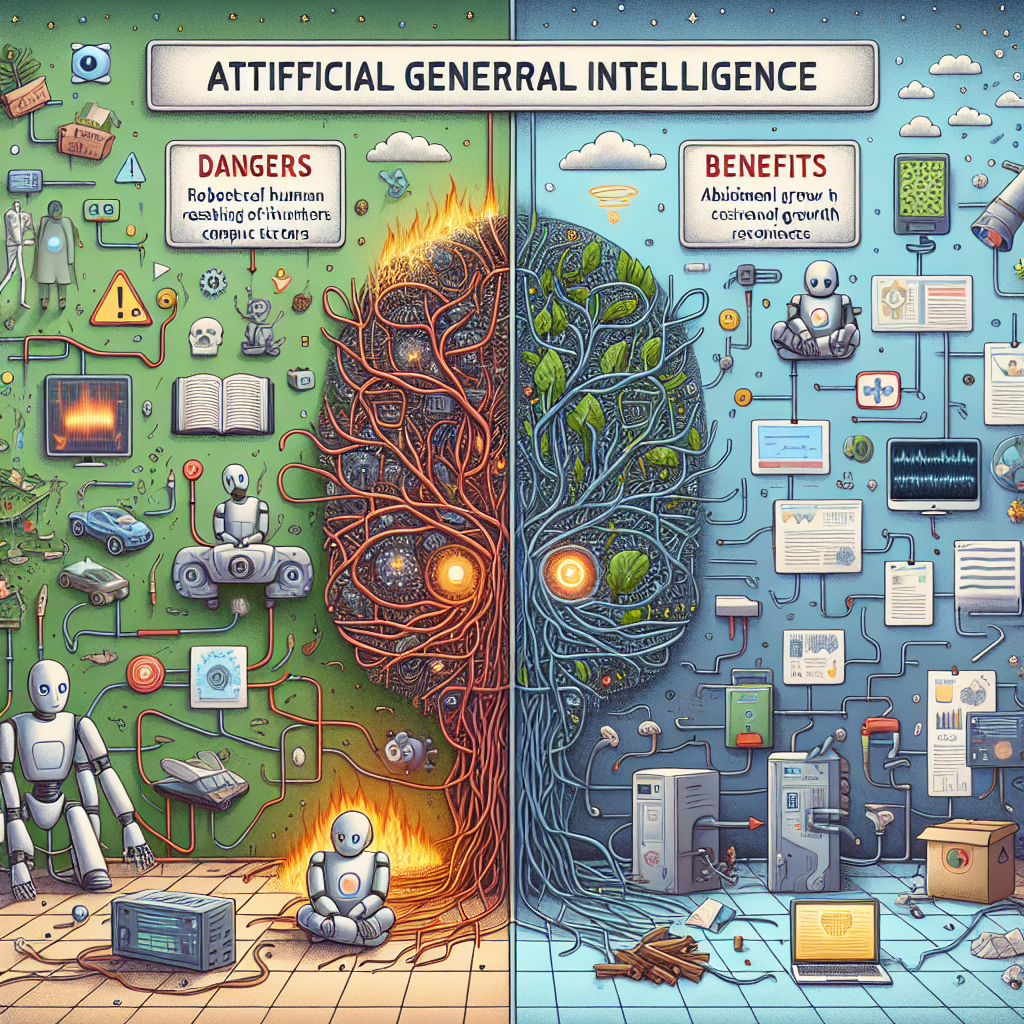Artificial General Intelligence (AGI) is a term used to describe machines that possess the ability to understand, learn, and apply knowledge across a wide range of tasks, similar to how a human can. While AGI has the potential to revolutionize industries, improve efficiency, and solve complex problems, it also poses significant dangers that must be carefully considered.
The Benefits of Artificial General Intelligence
1. Increased Efficiency: One of the primary benefits of AGI is the potential to improve efficiency across a wide range of industries. AGI-powered machines can automate tasks that are currently performed by humans, freeing up time and resources for more complex and creative work.
2. Improved Decision-Making: AGI has the ability to analyze vast amounts of data and make decisions based on that information. This can lead to more informed and accurate decision-making in areas such as healthcare, finance, and logistics.
3. Innovation: AGI has the potential to drive innovation in various industries by enabling new technologies and solutions to be developed. This could lead to breakthroughs in areas such as healthcare, transportation, and energy.
4. Problem-Solving: AGI can be used to solve complex problems that are currently beyond the capabilities of human intelligence. This could lead to advances in fields such as climate science, genetics, and materials science.
5. Personalized Services: AGI can be used to provide personalized services and recommendations to individuals based on their preferences and behavior. This could lead to more efficient and tailored experiences in areas such as shopping, entertainment, and healthcare.
The Dangers of Artificial General Intelligence
1. Job Displacement: One of the primary concerns surrounding AGI is the potential for job displacement. As machines become increasingly capable of performing tasks that were previously done by humans, there is a risk that many jobs could be eliminated, leading to unemployment and economic instability.
2. Loss of Control: AGI systems have the potential to operate autonomously and make decisions without human intervention. This raises concerns about the loss of control over these systems, particularly in situations where the consequences of their actions could be severe.
3. Bias and Discrimination: AGI systems can inherit biases from the data they are trained on, leading to discriminatory outcomes. This could result in unfair treatment of certain groups of people and perpetuate existing social inequalities.
4. Security Risks: AGI systems could be vulnerable to hacking and manipulation, leading to potential security risks. This could include attacks on critical infrastructure, theft of sensitive data, and other malicious activities.
5. Ethical Concerns: AGI raises a number of ethical concerns, including questions about the rights and responsibilities of intelligent machines, the impact on human dignity, and the potential for misuse of the technology for nefarious purposes.
FAQs
Q: Will AGI replace human intelligence?
A: While AGI has the potential to perform tasks that were previously limited to human intelligence, it is unlikely to completely replace human intelligence. Humans possess unique qualities such as creativity, empathy, and intuition that are difficult to replicate in machines.
Q: How can we ensure the safe development and deployment of AGI?
A: It is important to establish ethical guidelines and regulations to govern the development and use of AGI. This includes ensuring transparency in the decision-making processes of AGI systems, addressing bias and discrimination, and implementing safeguards to prevent misuse of the technology.
Q: What are some potential applications of AGI?
A: AGI has the potential to be used in a wide range of applications, including healthcare (diagnosis and treatment of diseases), finance (risk assessment and investment strategies), transportation (autonomous vehicles), and entertainment (personalized content recommendations).
Q: How can individuals prepare for the impact of AGI on the workforce?
A: Individuals can prepare for the impact of AGI on the workforce by acquiring skills that are in demand in the digital economy, such as data analysis, programming, and problem-solving. Lifelong learning and adaptability will be key to navigating the changing landscape of work.
In conclusion, the development of Artificial General Intelligence has the potential to bring about significant benefits, but also poses significant dangers that must be carefully considered and addressed. It is essential to have open and informed discussions about the implications of AGI, and to work towards ensuring that the technology is developed and used in a responsible and ethical manner. By taking proactive steps to mitigate risks and maximize the benefits of AGI, we can harness the full potential of this transformative technology for the betterment of society.

